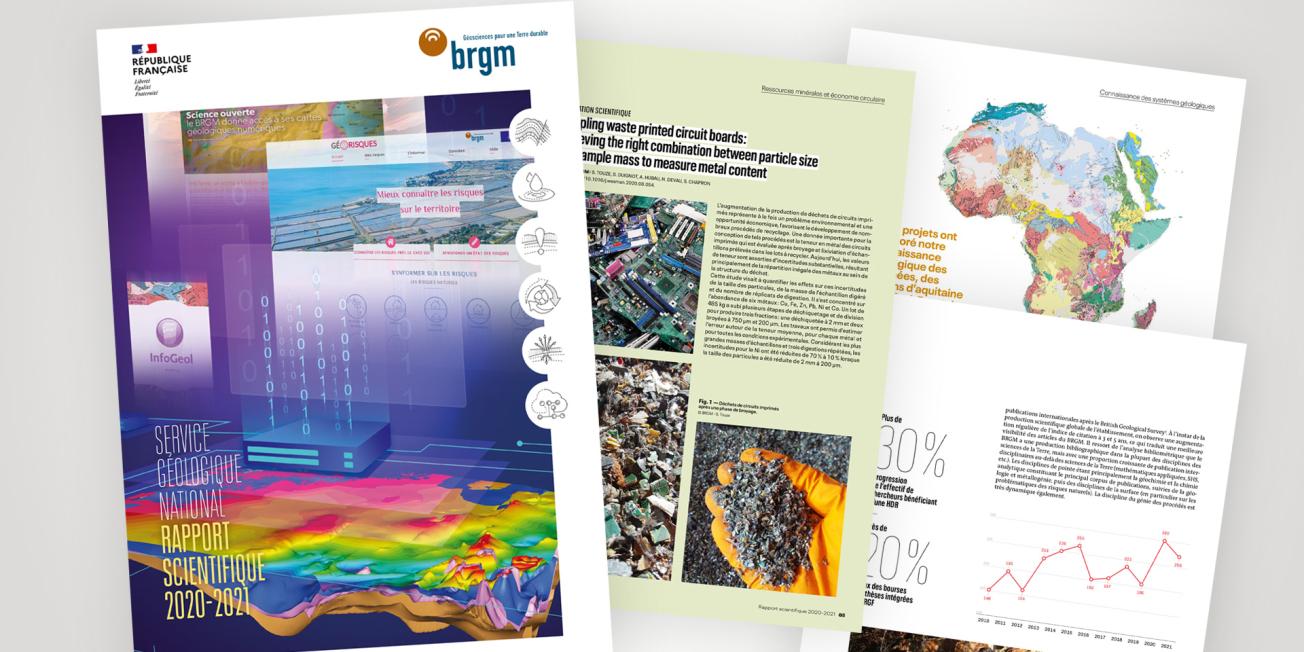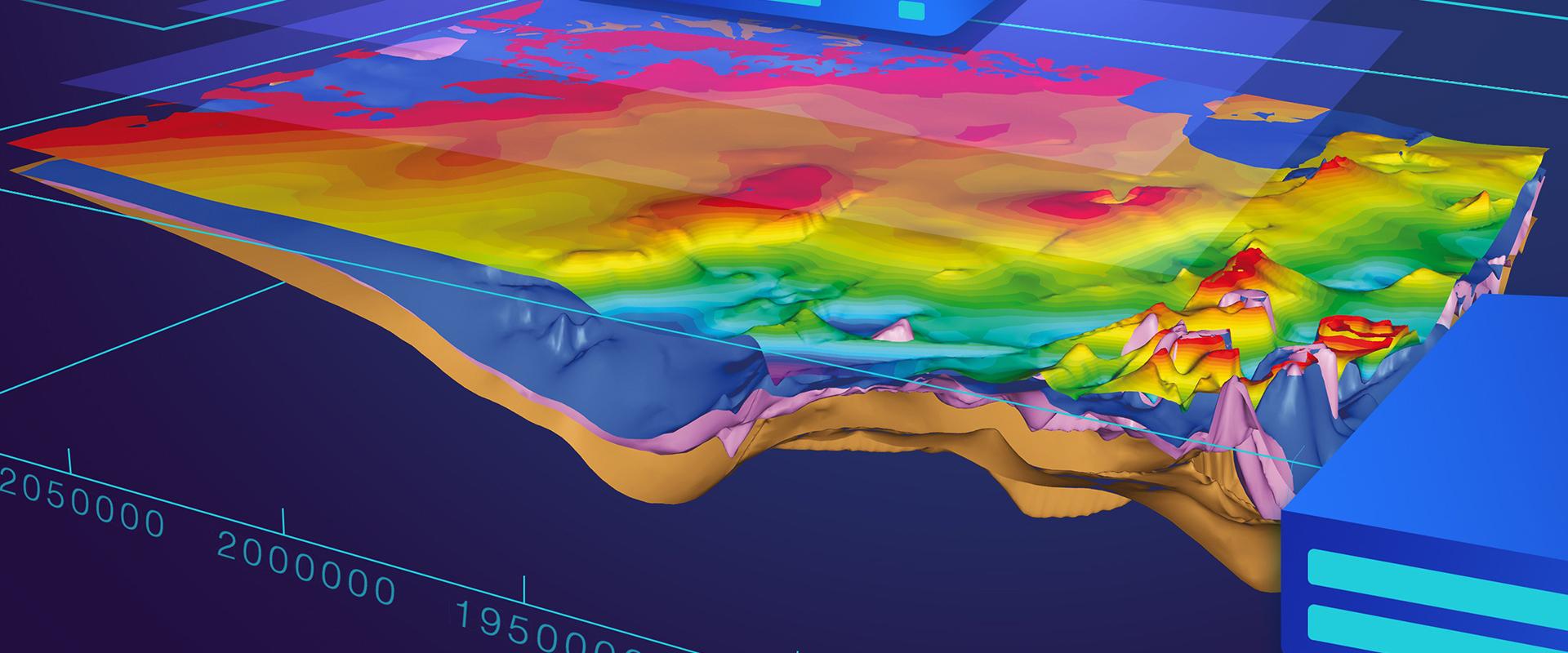
Cover and extracts from the BRGM science report for 2020-2021
© BRGM
At the interface between the international academic world and public or private users of science, BRGM continually draws on its own research and that of its partners to fuel its expertise.
For BRGM, the French geological survey, the 2020-2021 period was marked by the consolidation of its scientific strategy, which in particular enabled it to be entrusted with the coordination of three Priority Research and Equipment programmes (PEPRs), on water management (OneWater), natural hazards and technological risks (IRIMA) and the rational use of the subsurface (SOUSSOL), within the framework of France 2030 and with its partners CNRS, INRAE and the University of Grenoble-Alpes.
Despite the health crisis, BRGM has been able to maintain a solid programme of scientific research, illustrated by a significant increase in its international publications, which places it second among European geological surveys in terms of publications. The institution has also continued its support for research theses with a steady increase in the number of doctoral students. This dynamic is also based on a policy of local engagement that combines partnerships with university centres and synergism with proactive regional policies, such as those concerning coastal risks in Aquitaine and water management in Occitania.
In addition to these scientific achievements, BRGM is also keen to make the most of its status as a public industrial and commercial establishment by forging closer relations with the business world.
Discover BRGM's main scientific advances
BRGM's science report presents the main advances for each of its scientific programmes in 2020-2021, namely:
- Knowledge of geological systems
- Subsurface imaging and modelling
- Digital data, services and infrastructure
- Groundwater and global climate change
- Natural hazards and community resilience
- Management of mining and industrial impacts on land and the subsurface
- Mineral resources and the circular economy
- The energy transition and subsurface space







